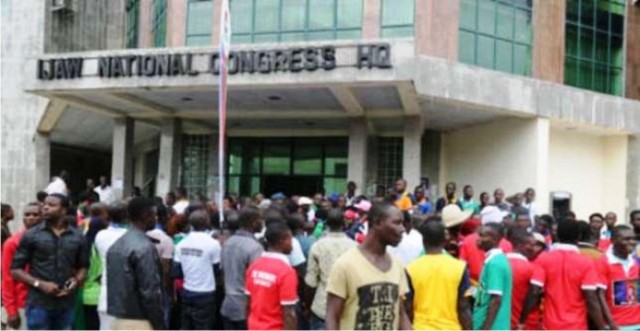Niger Delta
Activist Tasks N’Delta People On Derivation Principle

A renowned medical practitioner in Rivers State, Mrs Oridikitorusinya Odike, has warned those clamouring for the abrogation of the derivation principle that their actions may lead to the nation’s disintegration.
Odike said the 13 percent derivation principle enshrined in the 1999 Constitution as amended and the 2004 Act of the National Assembly, which applies to oil produced with the 200 meters water depth isobaths for littoral states, is the result of a national consensus to give oil- producing states a “modicum of justice”, adding that the issue was settled almost a decade ago, to assuage the pain of the oil producing states.
The medical practitioner said the dichotomy was never contemplated in the course of the nation’s democratic development.
Odike, a Microbiologist, said in abrogating the obnoxious onshore/offshore dichotomy law in 2004, the National Assembly demonstrated a sense of justice and stood to strengthen democracy.
According to her, “it was wrong for the agitators to claim that the maritime boundary belongs to the Federal Government, saying: “what of the negative impact of pollution on the environment of the states?”.
She said: Oil had become a curse not only because it has led to poor Gross Domestic Product (GDP), but also because of the inordinate interest in it. It is unfortunate. Do those people know that when oil spillage occurs, like we had recently in some Niger Delta communities, the people starve, and aquatic lives are destroyed?
“Do they know that some people die as a result of oil spillage and gas flaring? Do they know that gas flaring off our shores leads to acid rain and, in community like Afam, in Oyigbo LGA of Rivers State and Ika, in Ika LGA of Akwa Ibom State have to contend with skin diseases, destruction of farmlands, and you have to change the zinc of your house every year? Do you know how many people have died from effect of oil drilling? I bet they do not! If only they knew they would have taught differently.
Tracing the history of revenue sharing before the advent of the military, Odike said Nigeria had five revenue allocation plans. “The Willink Commission of 1953 went for 100 percent derivation of resources, to the resources bearing communities. The Raisman-Tree Commission of 1958, recommended 50 percent for host communities, 30 percent to regions and 20 percent to the Federal Government.
“The Hicks-Phillipson Commission of 1961 and Binn Commission of 1964, both recommended 50 percent derivation sharing to resource – bearing areas, 35 percent to regions and 15 percent to the Federal Government. “From the foregoing, it is clear that dichotomy was never contemplated in the course of our democratic development. It was purely a wicked military intervention. The paradox of the matter is that the military robbed the Niger Delta states and communities of their money; during the war, they left the areas in devastation and penury”.
The medical expert said no region suffered more during the war than Niger Delta, yet the war started through military adventurism.
By: Bethel Toby & Miracle Frank

